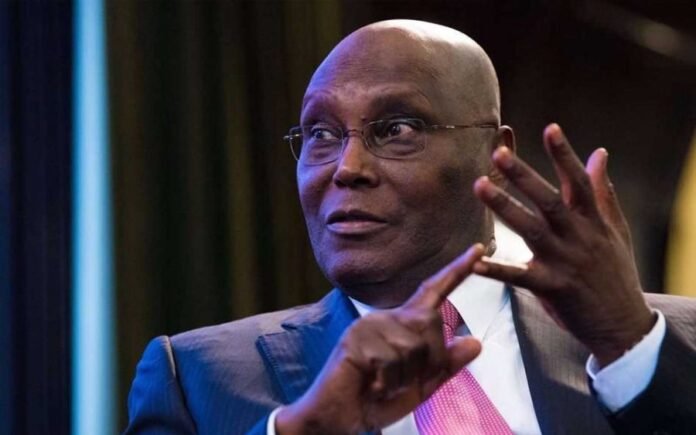Former Vice President Atiku Abubakar has delivered a blistering critique of the N49 trillion 2025 budget presented by President Bola Tinubu, labeling it an ineffective fiscal plan incapable of addressing Nigeria’s deepening economic challenges. Speaking on Sunday, Atiku described the budget as a continuation of failed economic policies, warning that it lacks the structural reforms necessary to foster sustainable growth.
The 2025 budget, which projects a revenue of N35 trillion against a staggering deficit of over N13 trillion, proposes to bridge the gap through extensive borrowing. With N9 trillion in direct loans and N4 trillion tied to project-specific financing, Atiku expressed concern over the government’s reliance on debt, calling it a mirror of past policies that have escalated Nigeria’s public debt and worsened economic vulnerabilities.
Atiku pointed to the government’s track record of underperformance as a red flag. He noted that by the third quarter of 2024, less than 35% of the capital expenditure allocated to Ministries, Departments, and Agencies (MDAs) had been disbursed, casting doubt on the government’s ability to execute its ambitious 2025 objectives. “This underperformance in capital spending undermines the government’s ability to deliver transformative projects,” he said.
Debt servicing emerged as a major point of contention, with Atiku highlighting that N15.8 trillion—33% of the total expenditure—has been earmarked for servicing debt. This nearly equals the N16 trillion allocated for capital projects, leaving little room for investment in critical sectors like infrastructure, education, and health. Atiku described this imbalance as a misallocation of priorities that risks perpetuating cycles of borrowing and stifling development.
Recurrent expenditure, set at over N14 trillion, also drew criticism from the former vice president, who described it as unsustainable. “Spending on an oversized bureaucracy and inefficient public enterprises undermines fiscal stability,” he said, calling for a reduction in waste and inefficiencies to free up resources for development.
Atiku argued that the allocation for capital projects—ranging from 25% to 34% of the total budget—was grossly inadequate to tackle Nigeria’s infrastructure deficit. With a per capita capital allocation of just N80,000 (approximately $45), he warned that the budget lacks the transformative capacity to stimulate economic growth.
The administration’s decision to increase the Value Added Tax (VAT) rate from 7.5% to 10% also came under fire, with Atiku describing it as a “retrogressive measure” that would exacerbate the cost-of-living crisis for ordinary Nigerians. He argued that imposing additional tax burdens without addressing inefficiencies in governance would stifle domestic consumption and strain the economy further.
Atiku concluded that the 2025 budget fails to provide the fiscal discipline or structural reforms needed to address Nigeria’s multifaceted challenges. He called for a shift towards a growth-oriented fiscal policy that prioritizes investments in infrastructure, education, and health over unsustainable borrowing and excessive recurrent expenditure.
“Nigeria needs a credible budget that reflects the realities of our challenges and offers solutions rooted in efficiency, accountability, and growth,” Atiku said, urging the government to adopt a disciplined approach to budgeting to avoid further economic stagnation.



